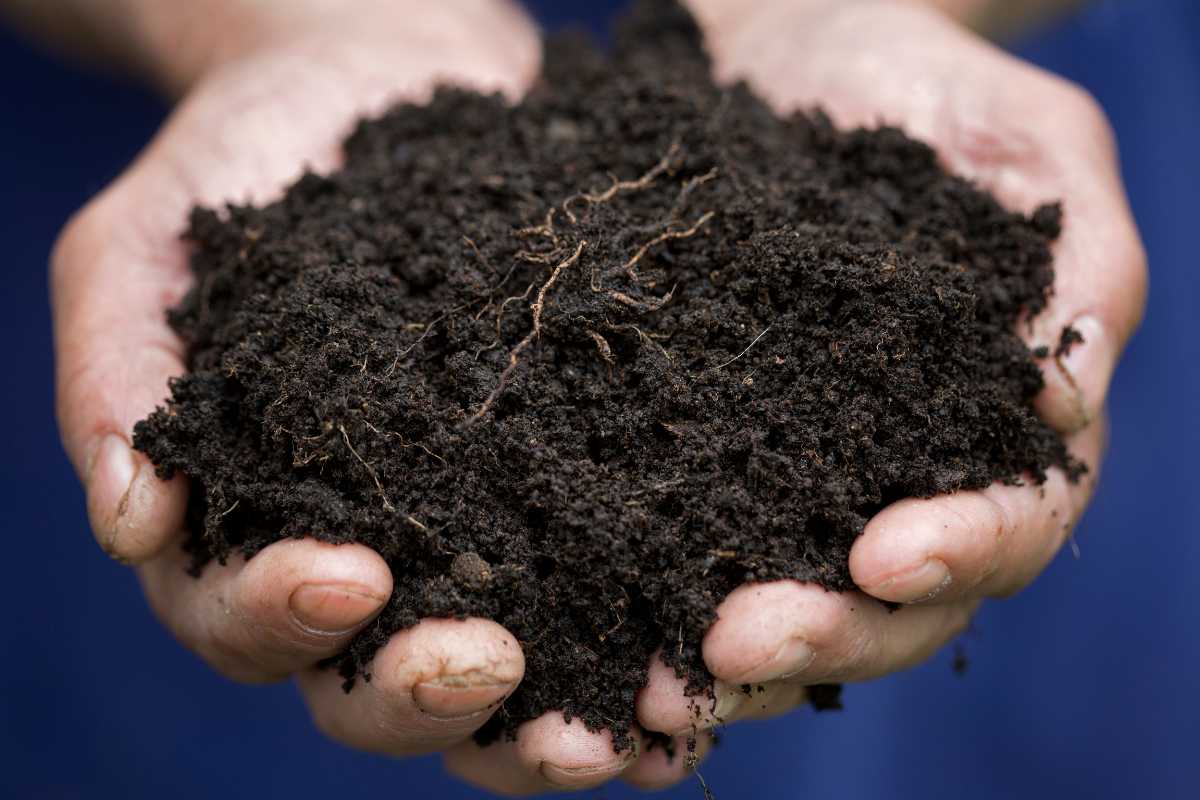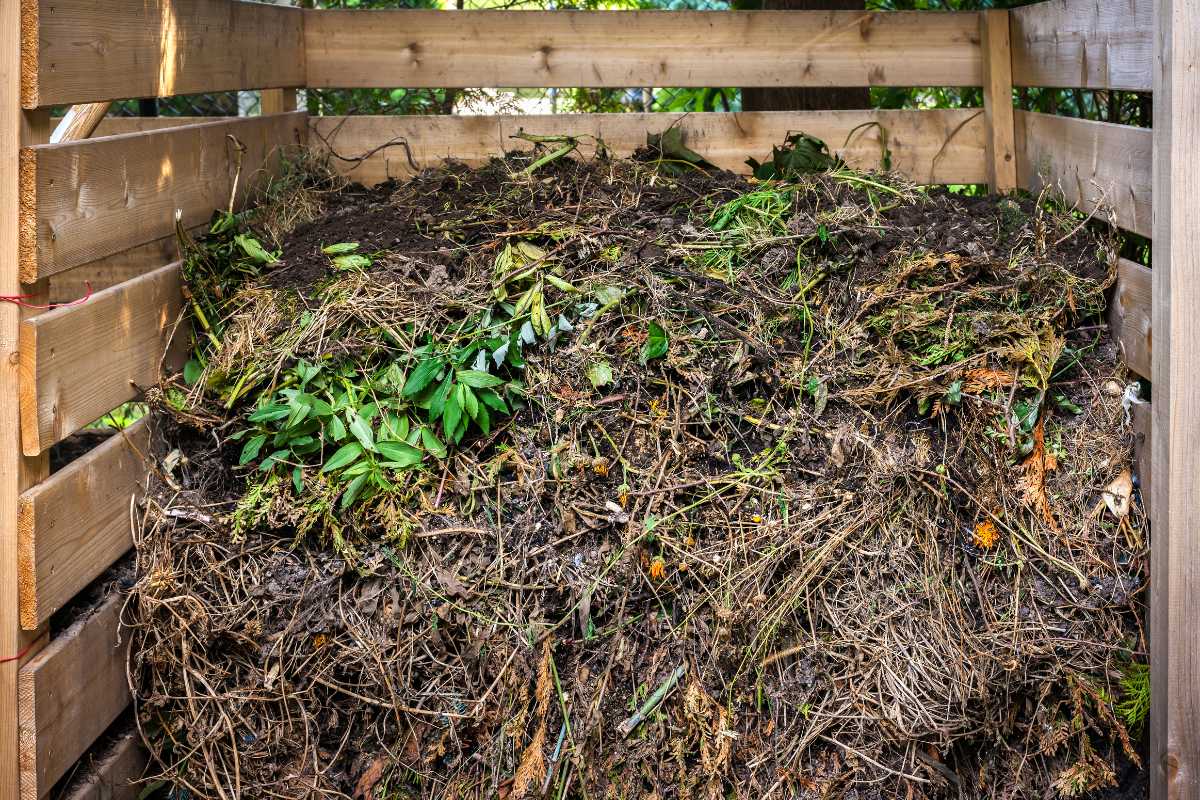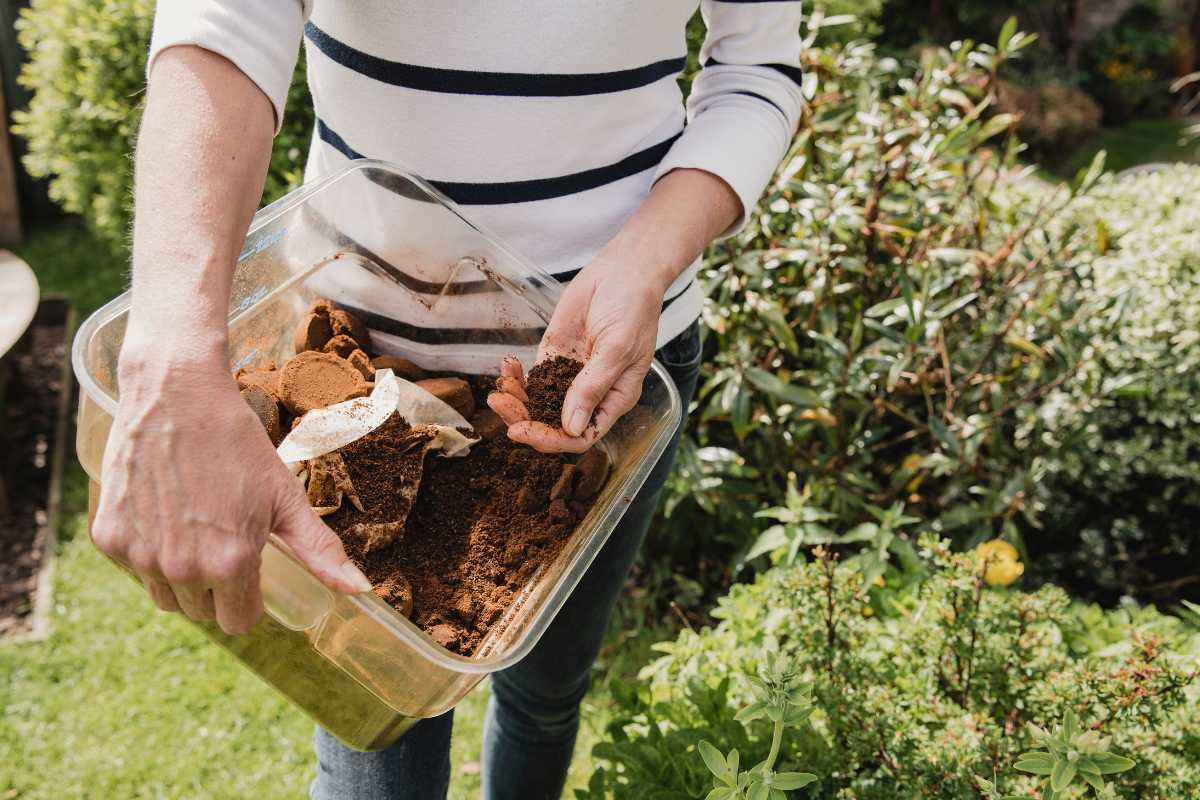Gardening contains a great deal of jargon, and any aspiring gardener wishing to learn more will invariably come up against a host of previously unknown words, many of which seem to be interchangeable.
Compost and humus will come up often, and usually in the same context.
So what is the real difference between humus vs compost? Is there any, between the two?
I’m going to go into it in more detail about humus vs compost, I’ll explain the differences, similarities, and how to use them.
Defining Humus and Compost

While the two are different, there is a reason that they are sometimes used interchangeably – they are both made from rotted organic matter.
Rotted organic materials are the best plant feed for your plants, and the best soil conditioner for any type of soil.
Compost refers to decomposing organic material. Once organic matter has rotted down enough that there are no distinguishable parts, and it looks like a rich, earthy soil, it is called compost.
Compost is what most gardeners will use to fertilize and maintain the condition of their soil. Composting is a popular and cost-effective past-time for many horticulturists and gardeners.
The definition of humus is highly contested, with some people defining it as matter that has decomposed without oxygen (anaerobically). Anaerobic decomposition is without oxygen, while aerobic decomposition is with oxygen.
Others assert that it is bio-degraded natural materials, rather than domestic, organic matter. For example, leaves and wood, rather than food scraps.
So you can see that there is a lot of conflicting information in the gardening community about what, exactly, humus is.
Nevertheless, most sources do agree that humus is organic matter that has been completely broken down, to the point that it can not break down any further.
Characteristically, it is a dark spongy substance that has great water retaining abilities and takes longer to form than the traditional composting process.
- Read More: What is Humus?
Humus and Compost Similarities
Both humus and compost are organic matter that has been broken down by insect and microbial activity. They can be used in similar ways and are equally great additives for all soil types.
They both add to and aid nutrient content, moisture retention, drainage, aeration, soil structure, and soil composition.
Humus and compost can look similar, although humus is generally darker and more spongy than compost.
Compost and humus both condition the soil similarly, helping with drainage, moisture retention, aeration, nutrition, and texture.
They are both formed in the same way, by a natural decomposition process. Because of this, many gardeners refer to finished compost as humus. While this technically may not be true, there is the high likelihood that finished compost does contain humus.
Humus vs Compost Differences

The most distinguishing difference between compost and humus is the length of time it takes to be made. Good compost can be produced in as little as a couple of months, depending on the composter and material. Humus, on the other hand, can take years to form.
When gardeners use compost, they often describe it as finished. However, there is actually still plenty of microbial activity breaking down and feeding on substances within the compost.
Humus is compost that has completely bio-degraded, and its only use can be to provide nutrients to plants in humus soil.
Compost looks like a rich earth, while humus is a dark and spongy material.
A good way to think about it is that while compost can contain humus, humus does not contain any compost.
All compost will turn into humus in time, but it can take years for organic matter to become 100% decomposed. If you regularly dig compost into your soil, there is a high likelihood that your soil will contain humus.
When to Use Humus vs Compost

Humus and compost can be used in pretty much the same way. However, gardeners tend to prefer using compost because of these compost advantages:
- Compost is quicker to produce
- Compost has more beneficial microbes
- Compost has more bulk than humus
- Compost is also generally cheaper to buy than humus, and so it is better to use if you have a large area that you want to improve and add nutrients too.
Humus is a good addition to potting mixes, and you can use it alongside compost. In fact, most compost may contain humus, as parts of the compost will likely have completely broken down.
If you are struggling to decide whether to use humus or compost in your garden, then you should assess your needs first.
If you are already composting, then you won’t need to purchase or make additional humus. Your current compost will do a great job of conditioning your soil and adding essential nutrients for better plant health.
If you don’t have your own composter and you have a small area that you would like to improve, or potted plants, then purchasing humus will be the better option. There are many humus options to purchase online, like this organic fish manure humus on Amazon.
Above all, humus is excellent in potting mixes as it is a good consistency, has plenty of nutrients, and has less chance of insect activity than soil – which makes it slightly preferable to compost.
Humus vs Compost Final Thoughts
In the end, humus and compost are similar soil amendments with the same goal of creating healthy soil. They are both created through the same method, and their primary function is to condition soil.
However, one product is usually preferred over the other for their different benefits.
For example, compost is faster to create and easier to apply, while humus is slower to form, but adds more nutrients to the soil.
Check out these other compost articles to learn more:


